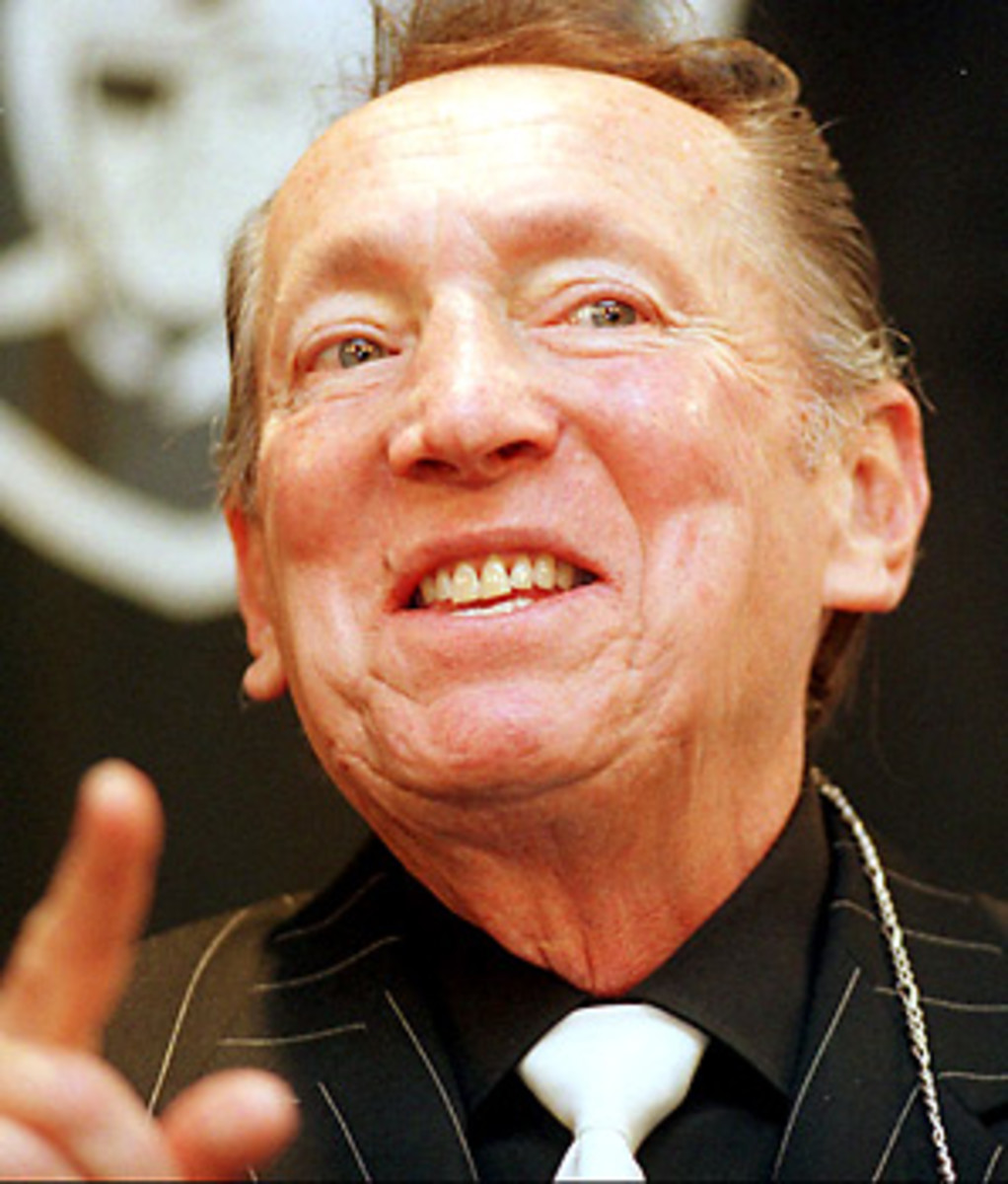Davis' death robs NFL of an iconic, one-of-a-kind presence
The NFL is never going to be the same. On Saturday morning, it lost its last true original, when Al Davis died.
The first time I met Davis, it was the early '90s and I was standing on a foggy training camp field in Oxnard -- another one of the weird stops in Davis' apparent effort to take over California.
I was a bold young reporter. So I introduced myself, exchanged a couple of inconsequential comments and asked the then-Los Angeles Raiders boss why Marcus Allen was in his doghouse.
Davis looked at me.
"Do you want to be my friend?" he growled ominously. And then ended the conversation before I could answer.
The answer, by the way, was no. I didn't want to be his friend. But I did want to write about him, an urge that only grew the longer I stayed in the sports writing business.
Because Davis was perhaps the most unique, odd and fascinating person I have ever come across.
Davis was, indeed, a maverick -- the term often used to describe him. He honed that reputation long before my time, as Raiders head coach at 33 and commissioner of the renegade AFL at 36. But when I was a child, as a young fan of the Raiders, Davis meant little to me. The Raiders were about larger-than-life John Madden and Kenny Stabler. Not about the weird guy on the sidelines in the tracksuit.
But when Davis moved the Raiders to Los Angeles, abandoning the best fans in football for an uninterested demographic -- well, then he had my full attention. And kept it for the next 30 years, until he died at 82 on Saturday.
On the day he returned to Oakland in 1995, I sat with him while he ate a hamburger with ketchup brought to him by an obsequious assistant. I watched as grown men -- graying, big, strong football players -- waited on him like paid valets. It was an historic day for Oakland but my main memory is Davis' fixation on his hamburger and the others' fixation on Davis.
He demanded loyalty and was said to have a heart of gold if he cared about you. And if you crossed him, you were dead to him.
We never became friends, but I'm pretty sure he knew a lot about me. There were rumors that he checked up on the background of every reporter who came in contact with his beloved team. He often had one of his people call up to harass a relatively new reporter about something he or she had written. I received a few of those phone calls in the early days. Eventually, though, the phone calls would stop and a form of détente was reached.
Every season, the media would wait for "the State of the Al." When Davis appeared behind a microphone, it was can't-miss theater. Sometimes a whole season would go by without an appearance. But inevitably, he would have to fire a coach and hire another one and take the stage.
The endless hirings and firings were horrible for the Raiders. But they were good for the media -- another appearance by Davis. Sometimes with an overhead projector. Or a lawsuit to talk about.
When he did talk, even as he became more and more frail in recent years, he was sharp. He would discuss the state of the newspaper business, world history. He always had a good sense of humor -- somewhat surprising since he always kept some of the most humorless souls in sports on his payroll. He could still surprise; for instance, admitting that he made a mistake with JaMarcus Russell after announcing at one press conference that Russell was going to be great.
In his last public appearance, last January, Davis used the hiring of Hue Jackson as an occasion to vivisect his former coach Tom Cable. It was a pure Davis moment.
At one point he said, "I have made mistakes, no question. You're saying, 'Should I take some of the blame?' I certainly do. You guys give it to me."
Davis was absolutely to blame for much of what's gone wrong with the Raiders over the recent years. But the team was his all-consuming passion. And it's impossible to imagine what the team and the franchise will be without him.
The Raiders may be on the right track now, and I was privately rooting for them because I knew how fascinating it would be to see Davis with a winning team one more time. It became a cliché and so many of his actions seemed to run contrary to the thought, but the most important thing to Davis really was to "just win, baby."
We all knew Davis would die at some point. I just never imagined it would be on an October Saturday, with a big game looming the next day.
The NFL will never be the same.






